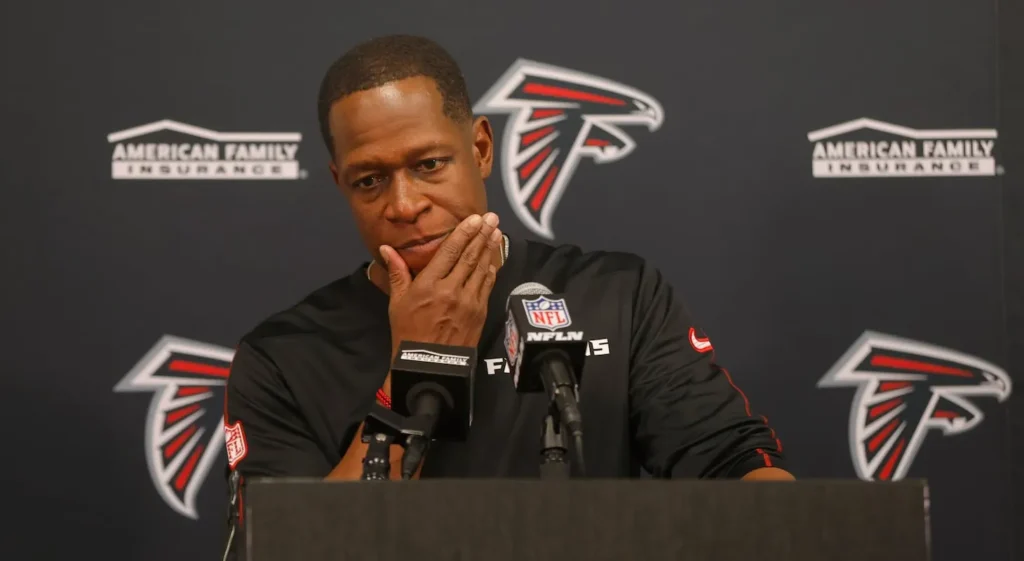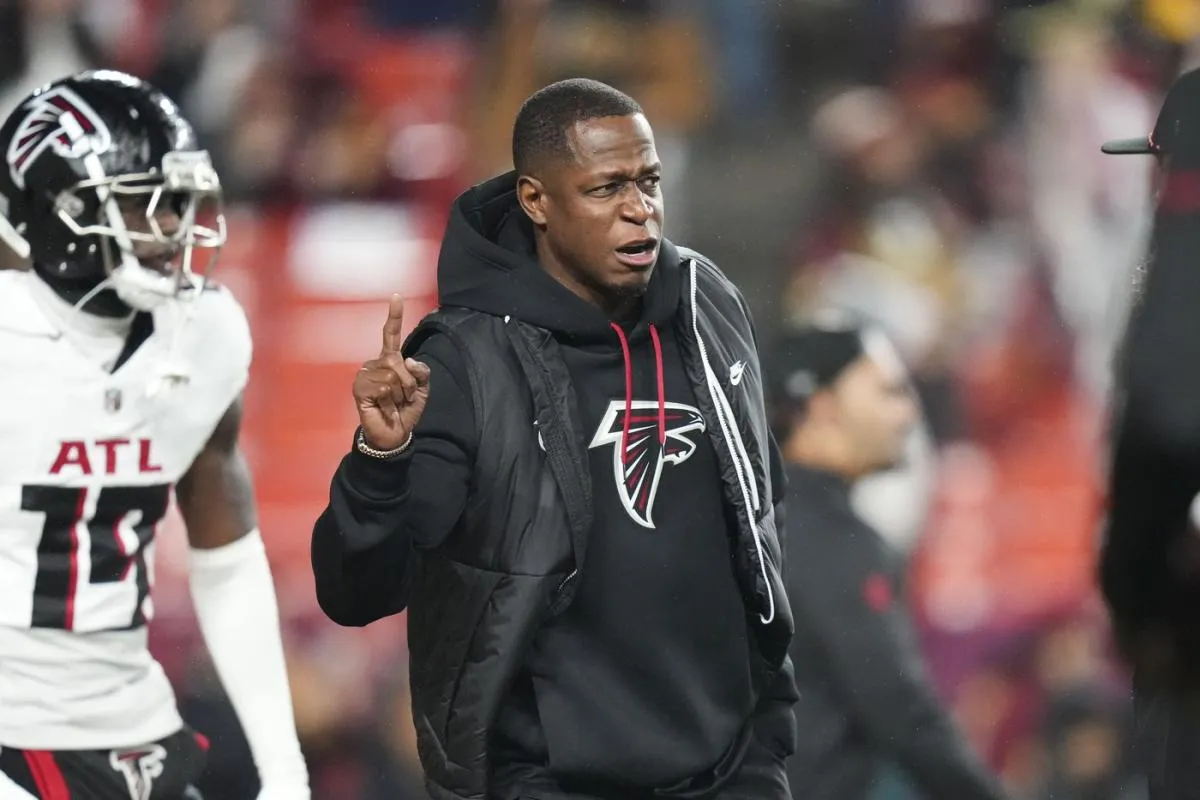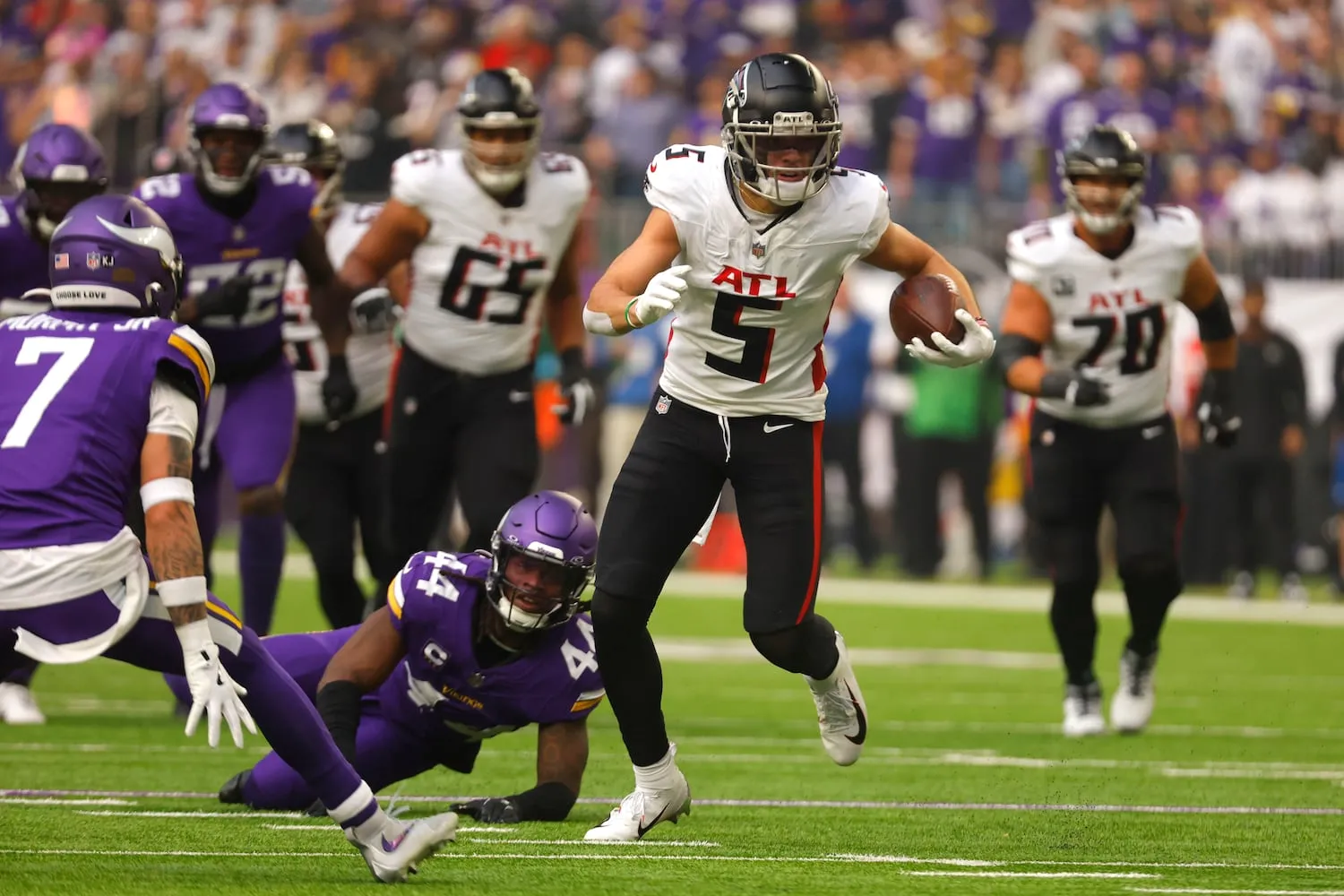
As the NFL season edges closer to the playoffs, the importance of strategic decisions during high-pressure moments becomes unmistakably clear. The Atlanta Falcons’ recent game against Washington showcased a critical lapse in late-game clock management that could have significant repercussions for their playoff aspirations. In a nail-biting finish, the Falcons tied the game with a crucial touchdown, but the subsequent decisions left fans and critics puzzled.

The Final Drive: A Sequence of What-Ifs
In the dying moments of the game, after a game-tying touchdown from Michael Penix, Jr. to Kyle Pitts, the Falcons regained possession with a scant 40 seconds left on the clock and two timeouts in hand. Penix connected with Darnell Mooney for a 25-yard completion, moving the ball to their own 44-yard line. Yet, in a move that has sparked widespread debate, no timeout was called. The clock dwindled down to 17 seconds before the next play was initiated.
Following a series of plays including two incompletions and penalties, the Falcons positioned themselves for a 56-yard field goal attempt. The kick, unfortunately, fell short, leaving the team and its fans to rue what might have been had they managed the clock more effectively.
Coach Morris on the Hot Seat
Post-game, Falcons coach Raheem Morris faced the media, explaining his decision to forego the timeout. “In hindsight, it could have been a good decision or a better decision to take that timeout, but I wanted to have the opportunity to move up there,” Morris stated, as reported by Marc Raimondi of ESPN.com. He acknowledged the dilemma, admitting, “You always second-guess those things, you can always second-guess those motives.”

Morris’ strategy was to keep the timeout in reserve, believing in the team’s ability to execute plays more swiftly. This decision placed immense pressure on quarterback Michael Penix, Jr., who was only making his second start. Despite the outcome, Penix publicly supported Morris’ decision, emphasizing trust in his coach’s judgment.
The Fallout: Playoff Implications and Team Morale
The consequences of these crucial moments extend beyond a single game. With the NFC South title and a playoff berth potentially on the line, such missteps can demoralize a team and alter the course of a season. Players, while supportive publicly, might harbor private doubts about these game-time decisions, questioning what could have been done differently.
Moving Forward: Lessons for Atlanta
As the Falcons reflect on this game, the lessons are clear: mastery of clock management is not just a skill but a necessity in the tight and unforgiving margins of NFL games. For Atlanta, this experience might serve as a bitter reminder of the stakes involved, but also as a crucial learning point as they prepare for the remainder of the season.

In professional football, every second counts, and knowing when to stop the clock can be as vital as any play called on the field. For the Falcons, the hope will be that such lessons are learned in time to salvage their season and carve a path to the playoffs. As they regroup and refocus, the effectiveness of their late-game strategies will undoubtedly be under scrutiny, as they aim to avoid repeating the same mistakes that could cost them dearly in the pursuit of postseason glory.
